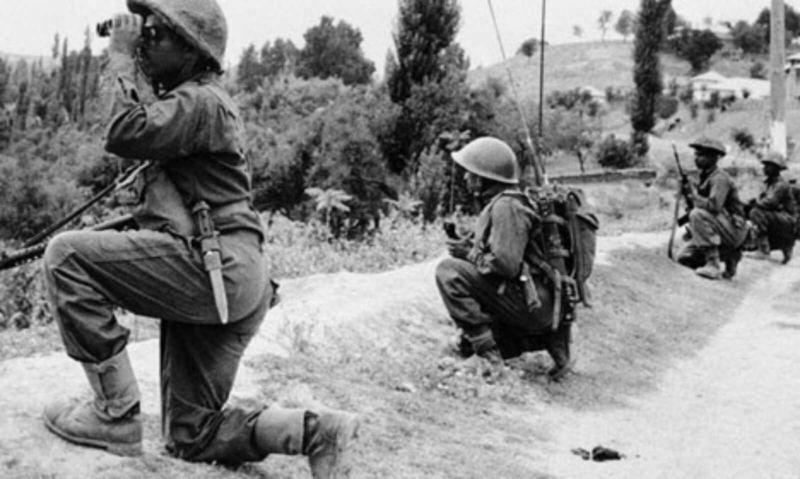April 13 will be remembered as a black day in Pakistan’s history. This is the day, future historian will write, when its pampered and stuffed-up political elites opted for a grand surrender. We have to live with the pain, infamy and ignominy of the December 1971 surrender at Ramna Park, Dhaka. That black moment was faced by a General who shall remain the face of Pakistan’s atrocities against its own citizens, the interference of an irresponsible, vengeful neighbour and the bravado of Bengalis who had been excluded from the privileged ‘martial race’ category by none other than Field Marshal Ayub Khan and his junta. This exclusionary act by the Field Marshal, later recorded in his memoirs, set the tone for an agenda of discrimination that was subsequently responsible for the second amputation of South Asia in less than 25 years.
On April 13, 2009, the National Assembly accepted that armed militias seeking power through militancy were legitimate. The house, while endorsing the Swat deal, indulged in little or no debate, let alone weighing the pros and cons of such a deal. Whilst recognizing the legitimacy of parliament, the minimum that should be expected from the representatives of the hapless awam is a meaningful discussion on an issue that is of manifest national importance. It was a tragic farce that had already been scripted and enacted in the desolate valley of Swat, which will now ‘obey’ a sectarian version of Shariah branded as Islam and ‘Divine will’ by Pakistan’s right wing and its electronic media bedfellows.
There stood the new-age majestic Rajas, driven by short term power imperatives and capitulating like their ancestors, only confirming that history repeats itself often in a brutally cruel manner. Yes, there were death threats and the well-established norms of top leaders that prevailed. But was there no intra-party discussion, trepidation or rumbling? How can they, the proponents of the rule of law and the peoples will, be so oblivious to what is dereliction of duty and an abject surrender?
Such ideological divisiveness leads to distortions of reality and its various discourses. But the camp that’s soft on the Taliban is more powerful. So what if it is not a group with the majority of the population behind it? It has arms, terror, money and the appropriate credentials for great-gaming. This is the cabal that has now silenced the National Assembly and its power-wielders. This is the group that articulates what the mainstream media should relay. The media messages therefore are confounding: excuses for flogging a seventeen year old girl have been crafted, the virtues of qazi justice are being counted and the Taliban-are-actually-Indian-agents, is a transmitted, urban legend now.
This is why the only dissenting party from the National Assembly’s collective wisdom, the MQM, is being viewed suspiciously for its forthright and strong condemnation of the Swat deal and its endorsement by the legislature. Instead of recognising that in these dire times any degree of truthfulness and courage should be welcomed, the historical capitulators are damning this urban group of the country. If anything, the MQM has rekindled hope among citizens that capture by the extremists would not be that easy or pervasive.
The fog of confusion is also a metaphor for inaction. A collective sense of resignation prevails. In the Pakhtoonkhwa, this feeling has grown beyond belief. Even before the political elites capitulated, parts of the civilian administration, as press reports are now suggesting, were quick to recognize the new Shariah-branded rulers. This trend wants to flow downwards into the rest of Jinnah’s Pakistan. It wants to compete with the course of the mighty Indus; and criss-cross the Punjabi heartland where Nanak had once sung songs of love and Divine unity under the influence of Muslim Sufis. Here Baba Farid Ganj-e-Shakar spread the message of love and the equality of man that is central to Islam.
The recent, horrific threat to the Taxila museum is an ominous message for our civilised existence. The mysteriously beautiful ruins of Taxila, where the followers of Gautam Buddha sowed saplings of peace and enlightenment, are now endangered, and God forbid might suffer the tragic fate of Bamiyan when mellenia old gigantic statues were blasted with dynamite and destroyed. The merchants of hatred also want to capture the truly cosmopolitan urban centre of the country and the mystical lands of Sindh. And, we hear ad nauseam that the deal will bring peace. It can only guarantee ruination of our centuries-old syncretic, plural and predominantly Sufi culture.
I have been told that silence is the best reaction to the gravity of this situation. But how can I remain unaffected and quiet after seeing that my country might be disfigured and my roots pulled out, to be replaced by an ideology completely alien to my thousand-year old consciousness? How can I not write about an absolute lack of a cultural challenge to the barbarians, and the shameful retreat of the progressives?
If nothing else, I don’t want to end up as an exile without a cause.



